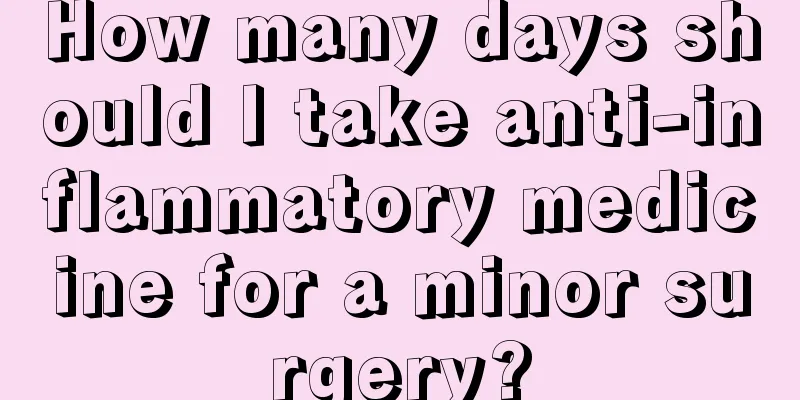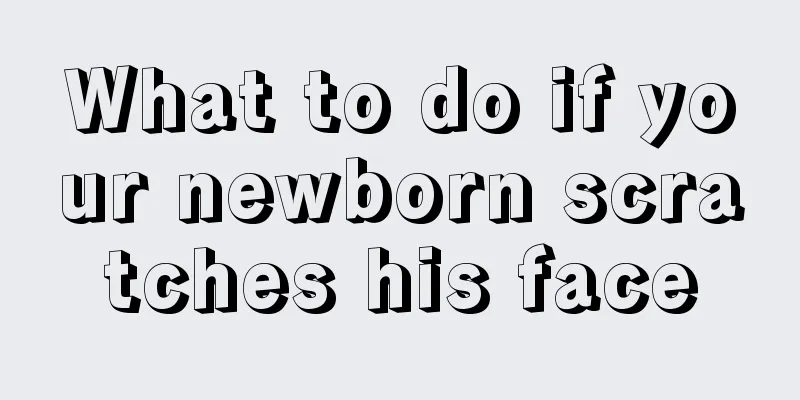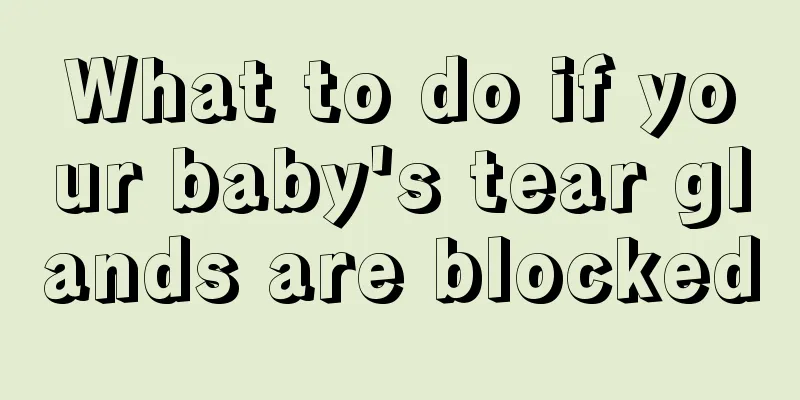What to do if infants and young children have intestinal gas

|
I often hear some elderly people say that hernia in infants and young children is caused by the baby's bad temper and stomach gas. In fact, it is not true. Hernia in infants and young children must be treated in time. So how to treat hernia in infants and young children? There are many methods. We must choose the appropriate treatment method according to the child's situation. Here I will introduce to you the treatment methods of hernia in infants and young children. I hope it will be of some help to every father and mother. During the embryonic period, the boy's testicles descend into the scrotum through the channel in the groin. If the channel is not fully developed and is not completely "closed" after birth, a "pocket" will form in a triangular area at the junction of the inner thigh and the abdominal wall. The small intestine, peritoneum, etc. in the abdominal cavity will fall into this "pocket" and form an inguinal hernia. Inguinal hernia is a fairly common pediatric disease with an incidence of about 3%, and the chance of occurring in boys is about 5-10 times that in girls. 【Cause】 Increased abdominal pressure is the main cause of hernia. For example, constipation, coughing, crying, and straining can increase abdominal pressure. 【Countermeasures】 If hernia occurs, let the baby lie flat immediately and raise the lower body appropriately. Generally, the hernia will disappear after a while; or you can gently push the lump back into the abdominal cavity with your hands. Special reminder: If the "air bag" of a baby with hernia is very hard and cannot be returned to the abdominal cavity, and vomiting, abdominal pain, and fever occur, it indicates that the small intestine is incarcerated. The baby should seek medical attention immediately for surgical treatment to avoid life-threatening sepsis caused by intestinal necrosis. 【treat】 In principle, inguinal hernia should be treated surgically. Nowadays, anesthesia and surgery have made great progress, and the risk of surgery is extremely low. Each inguinal hernia is treated slightly differently, as follows: Type 1/Inguinal hernia in premature infants Surgery can also be arranged for premature babies if inguinal hernia is found. To avoid sudden clamping and intestinal necrosis, surgery for premature infants should be scheduled before discharge from the hospital. Type 2: Inguinal hernia discovered during general outpatient visits Surgery should be scheduled after some acute illness is cured. Respiratory infections are very common in children. Surgical anesthesia requires the insertion of an endotracheal tube. Therefore, anesthesia should be performed after the respiratory disease is cured to reduce the sequelae of intubation. Type 3/Clamped inguinal hernia Surgical treatment must be performed immediately to avoid damage to the hernia contents such as the intestines, peritoneum, and blood vessels due to twisting and compression. Type 4: Inguinal hernia discovered in children under 2 years old The chance that they will also develop a hernia on the other side is 10 to 40%. Girls have a higher chance of developing bilateral hernias. When performing hernia surgery on one side, the groin on the other side can be opened at the same time to see if there is a hernia as well. Although this is a matter of personal opinion, in order to eliminate parents' doubts and reduce the risk of anesthesia during another surgery, an incision can be made from the navel and an endoscope can be used for exploration while performing surgery on one side. If there is also a hernia on the other side, the most appropriate method is to correct both sides at the same time. The above is the treatment method for hernia in infants and young children introduced to you. Hernia in infants and young children must be treated as early as possible. The earlier the treatment, the better the effect. Because children develop very quickly, early treatment will help children recover faster. I hope to treat your child earlier. If you have any questions, you can directly consult our online experts. I hope I can help your babies. |
<<: Treatment of childhood brain tumors
>>: What to do if you have a fever due to polio
Recommend
Is it appropriate to bathe a child with a fever?
Every October, you can see long queues in the ped...
My baby has a fever but is in good spirits, what's going on?
I believe everyone knows about fever. It is a dis...
Is it good for children to take probiotics? What should I pay attention to?
Probiotics have a dual effect on regulating diarr...
What are the characteristics of girls' development?
We all know that girls' physical development ...
Why does my child keep blinking?
Eyes are our first window to directly contact the...
What to do if children have conjunctivitis?
Conjunctivitis is an eye disease. If you suffer f...
What to do if a newborn has a fever? Three reasons to tell you
A newborn's fever is actually a reaction of s...
At what age do children usually start to change their teeth?
The baby's growth is very fast, and the mothe...
The dangers of persistent low-grade fever in infants
For some children, if the fever persists, it will...
Tips for dealing with itchy eyes in children
Tips for dealing with itchy eyes in children: 1. ...
Is it ok to drip milk into baby's eyes?
It is said that breast milk is a panacea. When ba...
How to deal with redness of the vulva of a baby girl
If parents are not careful in care, the baby girl...
Why does my baby always grind his teeth when sleeping?
Some babies often grind their teeth when they sle...
What are the reasons for yellow-green stools in babies?
Facing the crying baby in their arms, I believe e...
What should I do if my baby is allergic to medicine?
If newborn babies are not adapted, they may get s...









